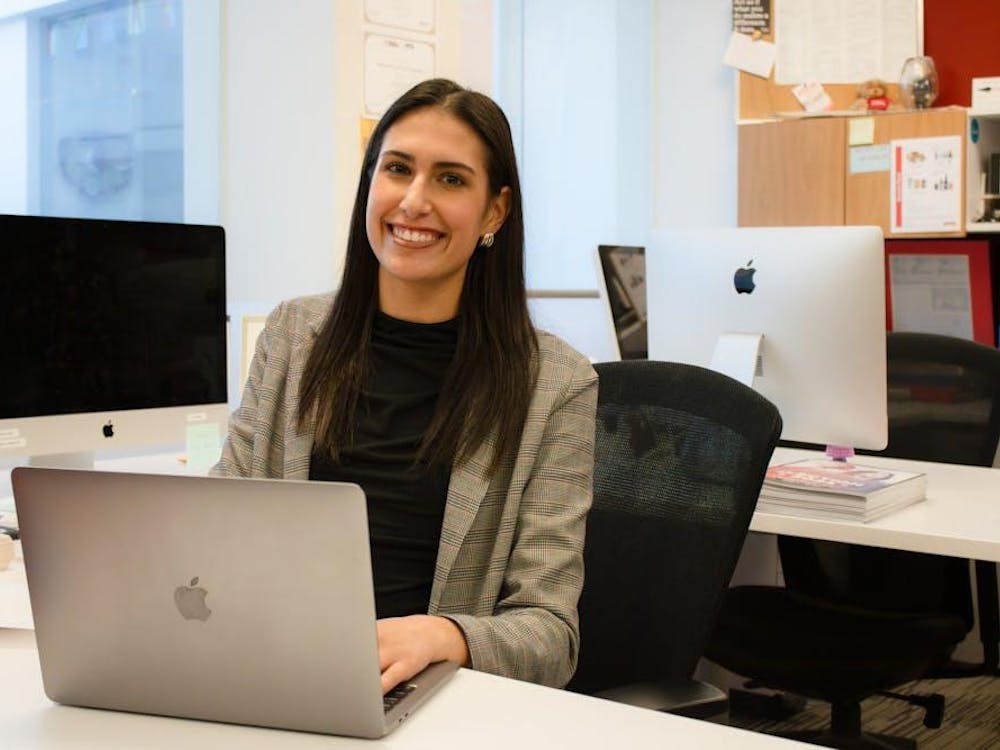Friends told Niko Rajani that he didn’t have to change his name as a transgender man. His legal name is Indian, so people in the United States wouldn’t register it as a feminine name.
But his legal name didn’t feel like his anymore. It was a dead name.
“I feel like I left that version of myself behind,” Rajani said.
Transgender students who change their name like Rajani, a fifth-year in the architecture program, still encounter their dead names regularly in their email inbox and in classes — unless they change their name in Miami’s multitude of systems after being accepted.
Two years ago, students and faculty could manually change their name in five IT systems out of the larger set of Miami’s systems. As of Feb. 1, it’s now possible to change one’s name in 40 Miami applications out of the 75 applications determined to be high priority. This includes school emails and Canvas.
Five systems are left for a team of employees from Miami’s Offices of Student Life, Academic Affairs and IT Services to fix. This includes a portion of MyMiami that is accessible to families and requires a student’s legal name. Some students like Rajani have asked for their new name to not be shared with their families through this system.
These early efforts made in the last few years are going to be organized in a larger effort of the Technology Inclusion Project (TIP), which aims to correct Miami’s systems to better support minority groups on campus, including the disabled community. TIP, about to start its research and planning phase this spring before implementing solutions this summer, will focus on being more conscious of why systems ask for demographic data and personal information when it’s sometimes not necessary.
Dean of Students Kimberly Moore said that in particular, the name of use policy, “an alternative to the individual’s legal name as designated by the individual in university systems,” is important for supporting trans students, as well as faculty who get married or divorced and must change their name.
“Somebody ... is negatively impacted by seeing their name that does not represent who they are over and over and over again,” Moore said. “It’s really important that we make sure our systems are communicating to one another so you don’t have to change it in 10 different places.”
Other systems that have yet to be fixed are Bannerweb and Kronos timekeeping systems, a facility and event system for the Recreation Center and Goggin Ice Center, and a training system used by staff that is being discontinued.
Seven systems, including those that send legal information to the IRS, are unchanged. They require the use of a legal name because they are sent to institutions outside Miami.
Diplomas also require the use of a legal name.
Enjoy what you're reading?
Signup for our newsletter
Rajani hasn’t changed his legal name to Niko because his parents aren’t supportive of changes he’s made so far, like when he started testosterone hormone therapy one year ago. As a remote student, he’s living with his parents. He hasn’t asked them to call him Niko, even though he has forwarded them emails before with his fixed email address.
Rajani changed his email and Canvas name to Niko last semester. These systems also gave him the new option to add his pronouns, though in some situations, this makes him nervous. It’s not common practice to ask for pronouns or provide them unprompted in classes.
“It feels like I’m being outed,” Rajani said.
Before he changed his name on class rosters, the first week of school was his hardest. Professors would say his dead name out loud to the class, and he had to gently correct the professor in front of everyone. If he forgot to share his pronouns during partner introductions, his partner would misgender him while introducing him to the rest of the class.
Six months after starting hormone therapy, his facial hair grew in and his voice dropped, but his professors still accidentally misgendered him.
This semester, another student in one of his classes shared pronouns during introductions and the rest of the class followed suit. Rajani thanked him after.
Junior Nik Sawade is nonbinary and uses they/them pronouns. They try to flag themselves as LGBTQ+ to other people in the community through their clothing and pins on their backpack.
Sawade said that professors and peers deadnamed them more often in class before the COVID-19 pandemic began. They changed their name on Zoom to Nik, so they can avoid being deadnamed by class rosters in the first few days of class.
But for new trans students, a dead name can still sour milestone moments. High school counselors push students to use legal names on college applications. If a student isn’t out to parents who are helping them with college applications like Sawade, they have to use their legal name.
When Sawade opened up their acceptance letter two years ago, the congratulatory confetti fell offscreen and revealed that Sawade had been accepted into Miami University. Instead of “Nik,” the letter used their feminine dead name.
Moore said that regarding the name of use policy, influencing outside systems was another task for TIP.
“It’s about creating ease,” Moore said. “It’s about acknowledging — not an individual’s chosen name but — name of use, you know, making sure we’re being inclusive as possible. And also influencing bigger and broader systems that feed our information, like the Common App.”



